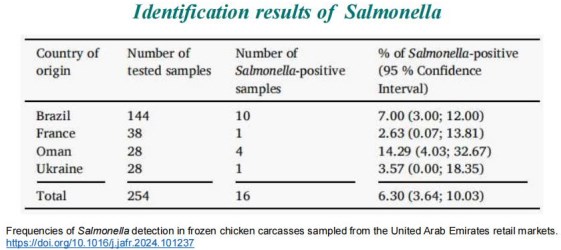
Background
Antibiotic resistance is a global public healthconcern, particularly within the food supply chain.The presence of antibiotic-resistant Salmonellaincreases the risk of foodborne diseases and can leadto the ineffectiveness of traditional treatmentprotocols.
Method Overview
This research employed genomic sequencing toanalyze the antibiotic resistance of SalmonellaMass spectrometry technologies, especially systems like the Autof ms1000, can complement this processby rapidly identifying resistant protein markers ormetabolites, accelerating the detection of resistantstrains.
Key Findings
Identification of Resistance Genes: Several genesassociated with antibiotic resistance, such as beta-lactamase and fluoroquinolone resistance genes, wereidentified in the study. Autof ms1000 can rapidly detectsignals related to protein and metabolic changes causedby these genes.
Resistance Patterns:The study revealed multipleresistance combinations, emphasizing the identificationof Salmonella strains resistant to multiple antibioticssimultaneously. With Autof ms1000, these complexresistance patterns can be quicklyidentified byanalyzing the protein fingerprint of bacterial samples.
Autobio rapid detection solution
MALDI-TOF MS has the advantages of rapid, accurate, high-throughput and sensitive in the detection andidentification of microorganisms.
The most comprehensive database
The Autof ms1000 has a database of more than 18.000strains containing more than 1,000 genera and more than5.200 species. The Gram-negative bacteria contains morethan 6,000 strains and 2,000 species, which canidentify Staphylococcus, Escherichia,accurately Pseudomonas, and many other bacteria.
Address: NO.87 Jingbei Yi Rd, National Eco&Tech Zone, Zhengzhou, China
Email: info@autobio-diagnostics.com Tel: +86-371-6200-7036
Autobio Copyright Reserved for ICP 18006568. All Rights Reserved.

